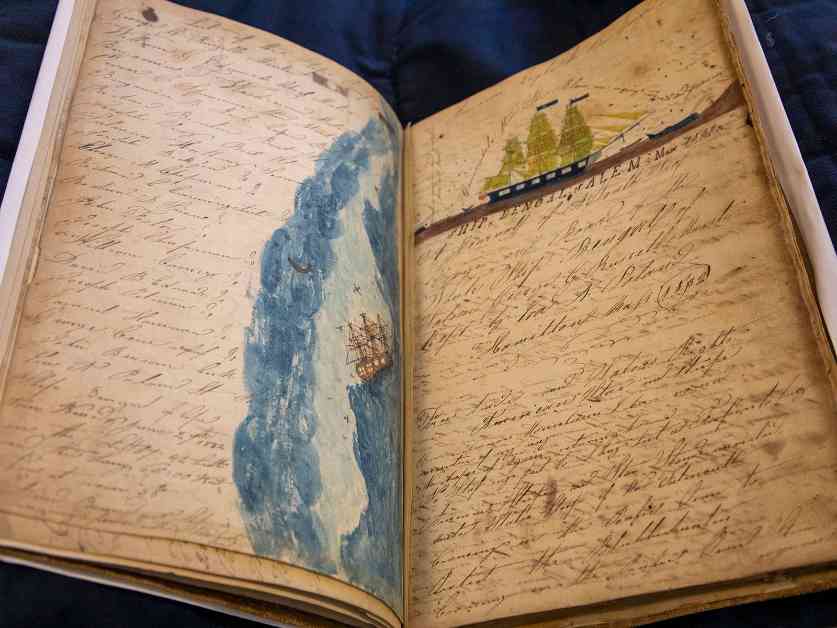During the height of the U.S. whaling industry in the mid-19th century, sailors heavily relied on wind to propel their ships as they hunted whales for oil. With limited instrumental data available, sailors recorded subjective descriptions of the wind in logbooks. Now, researchers in New England are analyzing these logbooks to understand how global wind patterns have shifted since the whaling era.
By translating qualitative descriptions of the wind into quantitative data using the Beaufort Wind Scale, researchers are uncovering valuable insights into historical climate patterns. These logbooks, filled with accounts of weather conditions, are proving to be a treasure trove of information for scientists studying climate change.
The research team, led by Caroline Ummenhofer, a physical oceanographer, is examining millions of logbook entries to track shifts in wind patterns over the years. By comparing these historical records with modern instrumental data, they are gaining a better understanding of how the climate has evolved since the 18th and 19th centuries.
One significant aspect of this research is the focus on regions of the world’s oceans that are less traveled by other ships. Whaling vessels ventured into remote areas to hunt whales, providing valuable weather data from regions where observational data is scarce. This data is considered crucial for understanding long-term climate trends in these areas.
The project’s emphasis on the Indian Ocean sets it apart from previous studies that focused on the Pacific and Atlantic Oceans. By examining whaling logbooks from voyages through little-trafficked regions, researchers hope to reconstruct past weather events and climate variability in a more comprehensive manner.
The historical climatology field, which uses artifacts and documents to study past climates, is gaining recognition for its valuable contributions. While traditional paleoclimatology methods involve analyzing environmental sources like tree rings, the study of historical documents offers a unique perspective on climate change.
The logbooks not only provide insights into shifting wind patterns but also offer a glimpse into dramatic events at sea. Stories of ship collisions, crew members engaging in altercations, and encounters with whales are documented alongside weather observations, adding a human touch to the scientific research.
As researchers delve deeper into the logbooks, they are also exploring how rainfall patterns can be quantified based on subjective observations by sailors. While wind data is relatively straightforward to interpret, rainfall poses a greater challenge due to varying personal experiences recorded in the logbooks.
Overall, the analysis of whaling logbooks is shedding light on historical climate trends and weather events that occurred centuries ago. By leveraging these unconventional data sources, scientists are enhancing their understanding of past climates and how they relate to current climate change challenges. The legacy of whalers unknowingly contributing to climate research serves as a testament to the importance of historical data in shaping our knowledge of the natural world.






